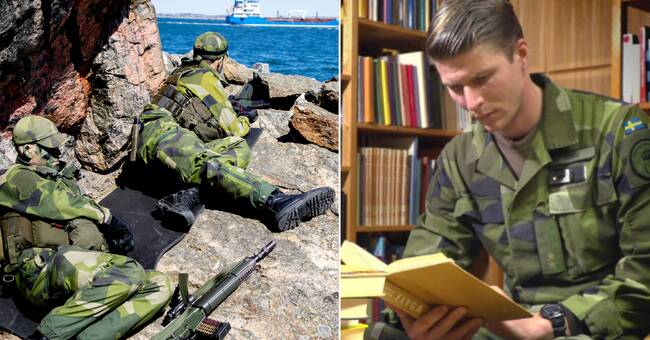Today, there are 9,100 professional officers and 6,700 reserve officers in the Swedish Armed Forces.
As an officer, you have some form of managerial position with responsibility for your subordinates.
Andreas Braw has worked in the military for ten years, with six years' experience of officer work.
There is nothing wrong with the physical and tactical training, he thinks.
But there are gaps in the preparations for a possible war.
- We do not know if, how or when the war will come and we have no personal experience of what we are going to do.
Here, literature should play a major role.
We can take other people's experiences and translate them into what we ourselves should do, he says.
"Fiction is a good way in"
It can be about reading books on leadership and tactics.
But just as much about thinking about ethical issues and understanding other cultures, says Andreas Braw.
Take Khaled Hosseini's books on Afghanistan, such as Flyga Drake.
It may not be so much about understanding hard facts, but getting to know a completely different society where the state is an evil power.
If you want to understand a country, fiction is a good way in.
The American model
Andreas Braw hopes that the Armed Forces will follow in the footsteps of its American colleagues.
The command of the Marine Corps, US Army and US Air Force has put together a literature cannon for all officers.
Reading is seen as an important way to prepare for armed conflict.
- It includes everything from pure naval literature to science fiction novels, books on economic systems and ordinary war novels.
When a new defense border chief takes office, they put together a list and expect their subordinates to read.
They want to create discussions and a learning organization.
Otherwise you risk getting stuck.
Within the Swedish defense, there is no official literary canon, although some of their own initiatives have been made in some places.
"The authority with its branches of defense and armed forces is not there.
Yet.
We have discussed the matter but have not yet landed on anything concrete ", writes the informant Marie Tisäter in an email.
"Should do the most extreme"
Andreas Braw's view is that Swedish officers generally read less compared to colleagues in other countries.
- I think there are no expectations from the organization and colleagues that we will continue to form after the training.
- We will do the most extreme thing there is: defend our country with deadly force.
You probably need to think it through properly before it's time to do it.

